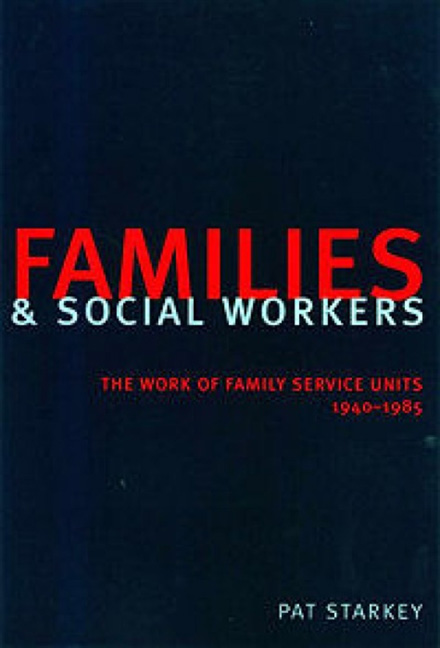Book contents
- Frontmatter
- Contents
- Acronyms and abbreviations
- Introduction
- 1 Pacifist Service
- 2 Problem Families, Eugenics and FSU
- 3 The Growth of a Social Work Agency
- 4 Changes and Adjustments
- 5 Training and Professional Development
- 6 Changing Relationships with the State
- 7 Almost Not An Organisation
- Conclusion
- Bibliography
- Index
Introduction
- Frontmatter
- Contents
- Acronyms and abbreviations
- Introduction
- 1 Pacifist Service
- 2 Problem Families, Eugenics and FSU
- 3 The Growth of a Social Work Agency
- 4 Changes and Adjustments
- 5 Training and Professional Development
- 6 Changing Relationships with the State
- 7 Almost Not An Organisation
- Conclusion
- Bibliography
- Index
Summary
It has never been one of the giants of voluntary social work. Management consultants called in to comment on its structure in 1988 noted its relatively small size and ‘hand to mouth’ financial existence. What was true at the end of the 1980s was equally true 40 years earlier, but in spite of its small size and its recent arrival in the social work field, Family Service Units (FSU) had been more confident of its role in the immediate post-war period than in 1988. In the intervening years it had exercised an influence on the development of social work practice and training which was out of all proportion to its size and financial resources.
Its important place in the history of a developing profession could not easily have been predicted. Originating in the activities of a small group of conscientious objectors who attempted to respond to the demands of wartime suffering by involving themselves in relief work, it came to the attention of politicians and the public alike with the publication of an account of the activities of the Liverpool, Manchester and Stepney Pacifist Service Units (PSU) during the war. The book attracted both national and international publicity. The active interest of Lord Balfour of Burleigh led the PSUs in Liverpool and Manchester to abandon the creed which had motivated their wartime work and to set up a more conventional voluntary social work agency, renamed Family Service Units, in 1948. The agency consisted of no more than a handful of young, untrained workers. Although confident of the value of their work, and convinced of the existence of the social phenomenon of the problem family, they were surprised to find themselves in receipt of invitations to establish units in towns and cities throughout Britain. They rose to the challenge, however, and throughout the next decade, units were set up and workers trained. FSU slowly and steadily positioned itself within post-war welfare arrangements.
Its lack of history proved to be one of FSU's major advantages. Facing what were feared to be major attacks on their autonomy by Labour government legislation in the years after the end of the war, other agencies working with families – especially those working with children – believed that their futures were in jeopardy.
- Type
- Chapter
- Information
- Families and Social WorkersThe Work of Family Service Units 1940–1985, pp. 1 - 7Publisher: Liverpool University PressPrint publication year: 2000



